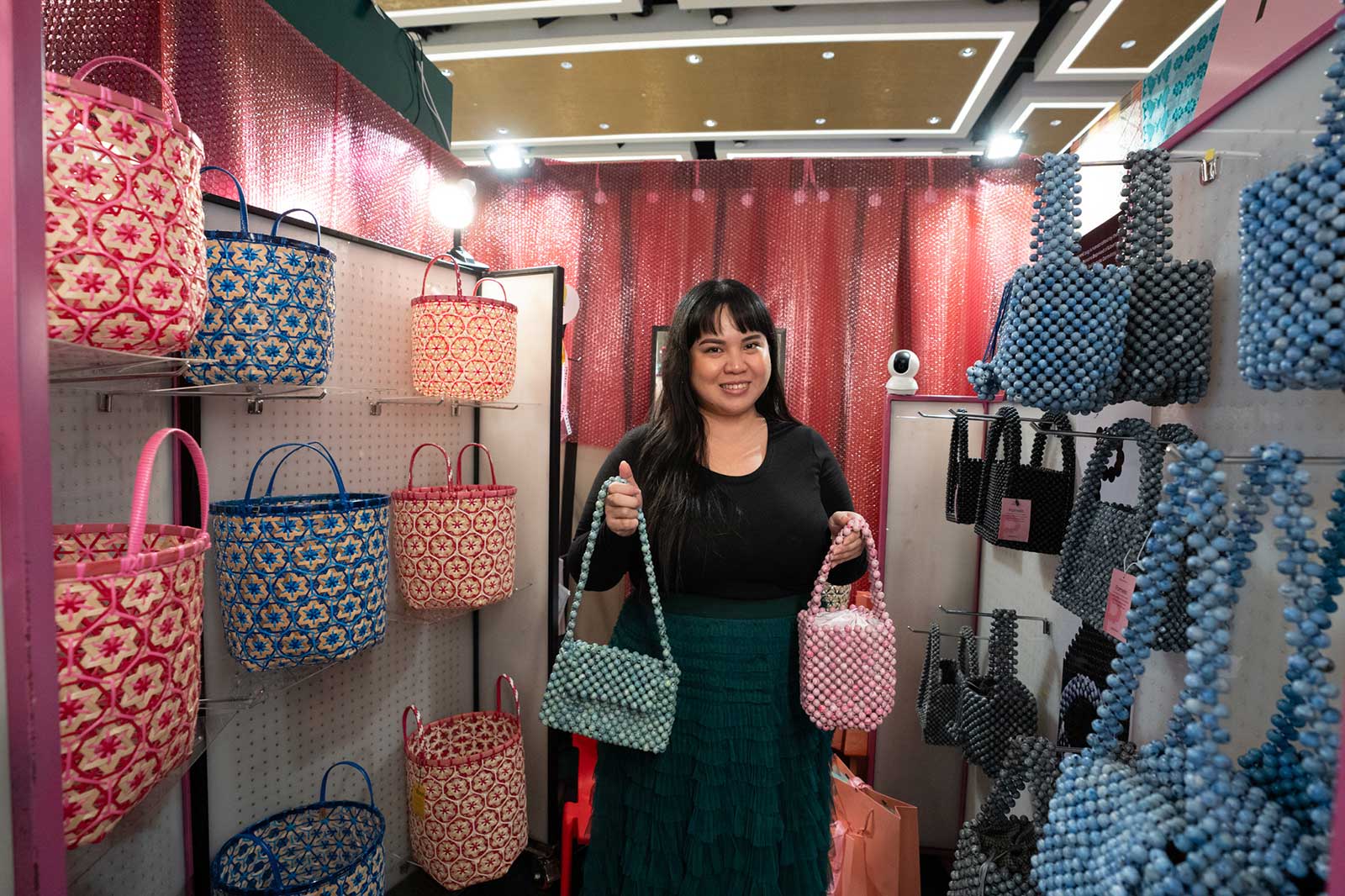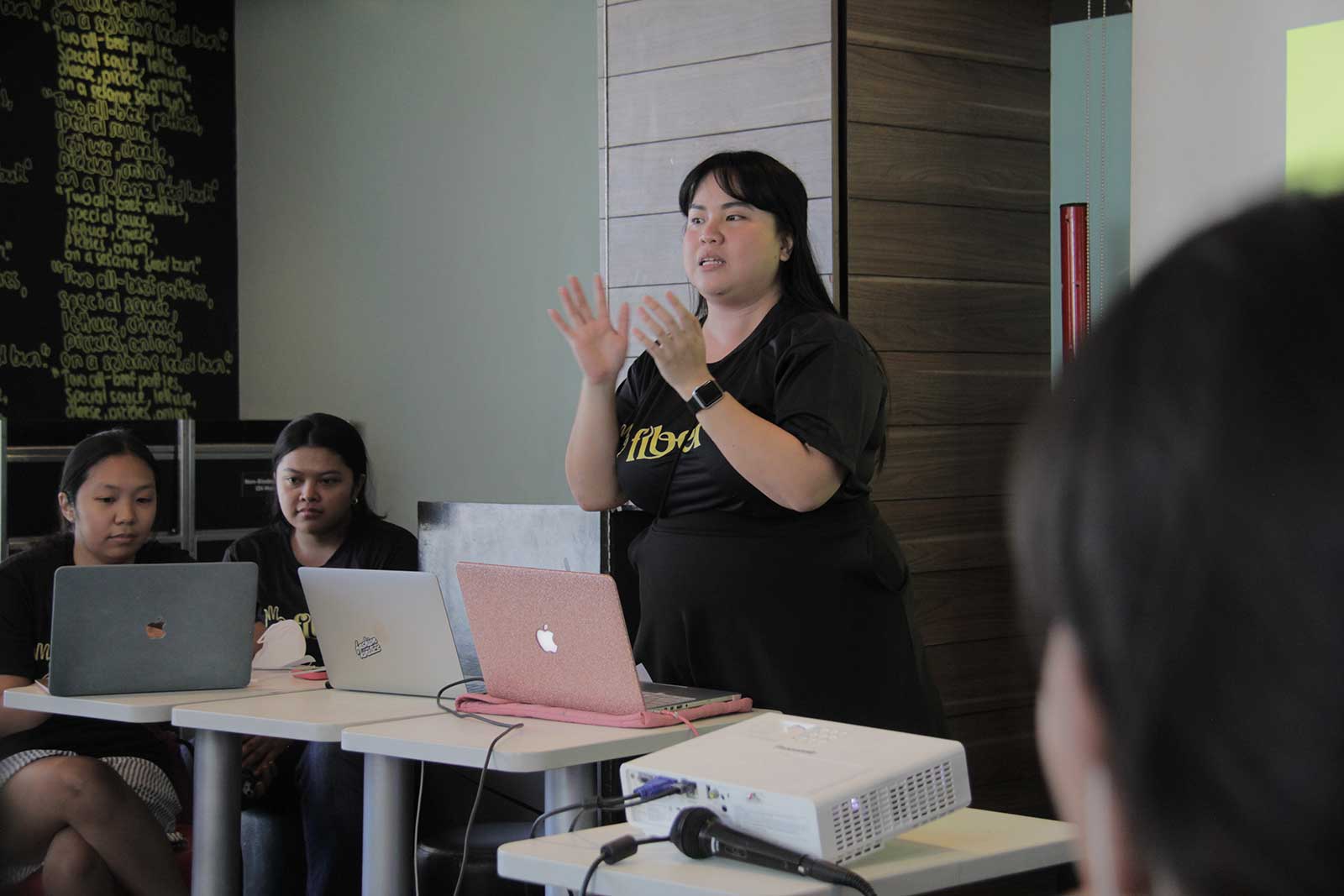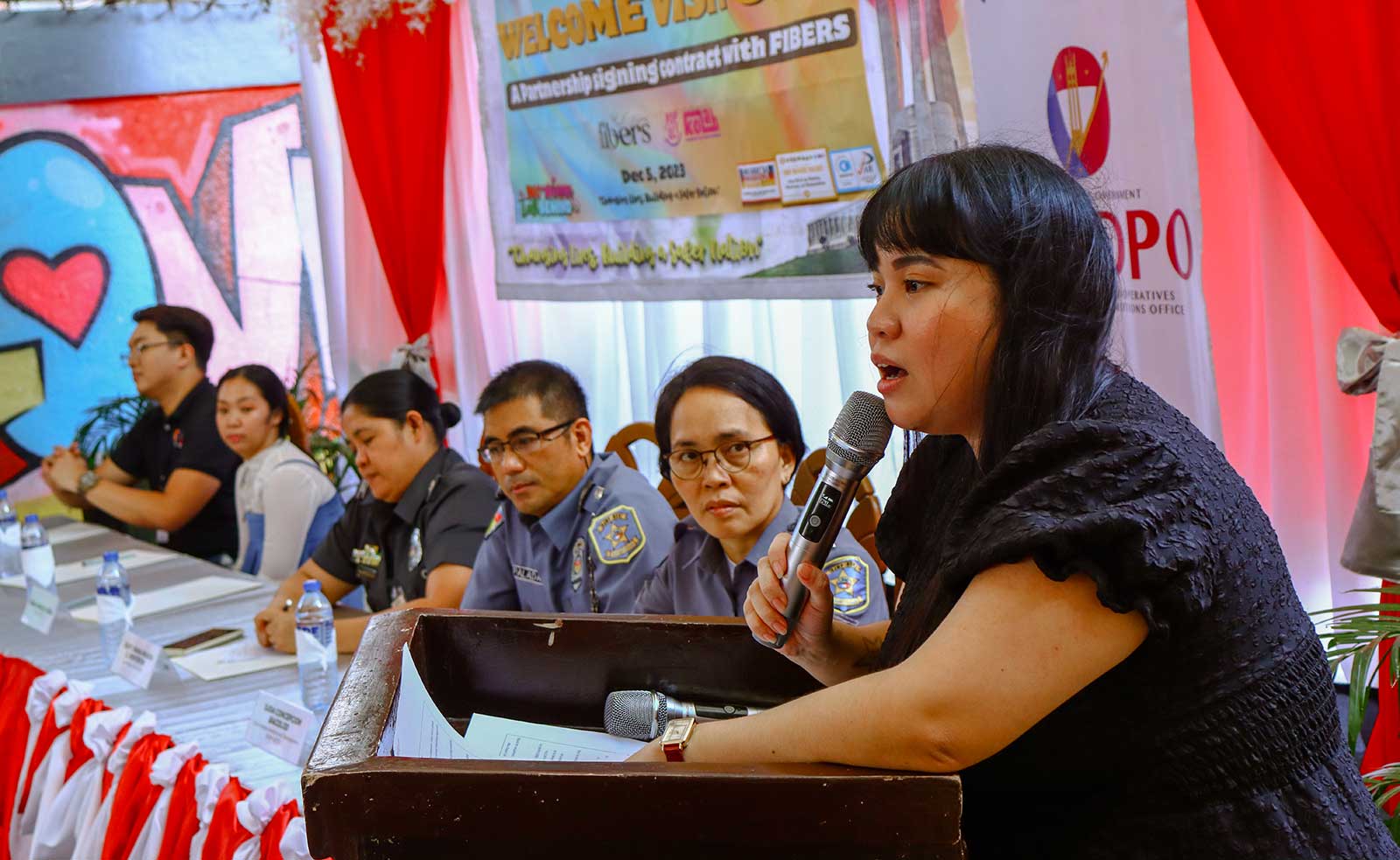Courtesy of Pamela Mejia
Vogue Philippines celebrates International Women’s Day through “Raising Hope,” in a call for nominations of inspiring women. Discover the story of Pamela Mejia, fashion social entrepreneur and founder of PAMMÉ, FIBERS, and Phinix.
Pamela Mejia’s earliest memories of fashion are tied to her family. As the firstborn granddaughter of the family, she was dressed up by her paternal grandmother and influenced by her father’s style. However, her passion for fashion was sparked by rom-com films. “I remember when I was six years old; it was my first time watching Clueless with my parents, and that made a mark on me. This is what I want to be: a ‘fashion girlie.’ And in fifth grade, my mom made me watch Legally Blonde. I was like, ‘I want to be this girl.’ I want to be a fashion girl who makes a difference in the world.”
And so she did. At 17 years old, Mejia first dipped her toes into the industry by launching a t-shirt printing company. From there, she would go on to launch her sustainable fashion brands, PAMMÉ, FIBERS, and Phinix, which have all gained recognition globally for their innovation and social impact.
“She was a runner-up and the only Filipino in the 2020 Mayor’s Entrepreneur Competition (out of 560 applicants), a winner of the 2021 London College of Fashion’s Enterprise Challenge, and one of the 20 incubatees of Cambridge University’s Sustainable Fashion Program,” says Captain Caroline Nacional, who nominated Mejia for Vogue Philippines’ Raising Hope. “Pamela has been awarded with over 35 global awards from esteemed institutions such as the United Nations, the US State Department, Tatler Gen. T Awards, and even under the esteemed recognition of President Barack Obama.”

The door that led Mejia to sustainable fashion
One day, Mejia was faced with a common dilemma when she stepped into her closet: what should she do with her old clothes? “In the Philippines, we either hand it down, give it away, or turn it into rags. When I looked at my closet, I realized we don’t have a proper disposal, a company that collects old clothes for us and turns them into something more useful,” she says.
This birthed Mejia’s startup called Phinix, where they collected textile waste and transformed it into higher-valued products such as shoes and bags. Since then, she has also launched PAMMÉ, where they recycle plastic waste into sustainable fashion products, and FIBERS, a non-governmental organization dedicated to empowering women to build profitable businesses.
It also led to Mejia’s exploration of fashion social entrepreneurship while she was studying at the University of the Philippines, Diliman. “Ten years ago, fashion social entrepreneurship was still considered a novel idea. When I was doing my research on this, I realized that fashion has a negative impact on the environment and even people,” she says. “To localize my research, I really wanted to know what the problem is for Filipinos in terms of fashion and how that will contribute to creating the whole definition of fashion social entrepreneurship.”
According to Mejia, the barrier between Filipinos and sustainable fashion is the accessibility and affordability of the products. “In the life of an ordinary Filipino, would you really think of buying a sustainable fashion brand when you don’t have food on your table?” she says. “I think the way to sustainable fashion and a fashion industry that is toward a circular economy is that we still have a lot to do in terms of economic and environmental systems that we still need to fix in order to make this happen as well.”

“We are a country of artisans. We have a lot of shoemakers, garment stores, and we have a lot of factory workers, so it’s a big industry that actually contributes to the national GDP. I hope that local institutions and government agencies will give funding and support to the local fashion industry,” she continues. “Globally, the fashion industry contributes so much to waste. It’s time for institutions to partner with different fashion brands and stakeholders so that we can lean towards sustainable fashion.”
Although sustainable fashion brands can be expensive for most Filipinos, Mejia urges individuals to practice sustainability. “The door to sustainable fashion starts in the comfort of your own home. It starts in your wardrobe, the way you choose your clothes, your choice of repeating outfits, choosing quality over quantity, and not having the urge to have a new outfit all the time.”
She also advises supporting local brands. “The impression of sustainable fashion brands is that it’s expensive, but if you can’t buy from them, you can go for local brands because it’s part of the whole business model and supply chain of sustainable fashion,” she says. “Supporting local is supporting sustainable fashion.”
Opening doors for others

Through her work as a fashion social entrepreneur, Mejia has launched several startups that have impacted not only sustainable fashion but also the lives of entrepreneurs and artisans in the Philippines. “One of the most remarkable aspects of Pamela’s work is her relentless pursuit of sustainability and social impact in the fashion field. Through her ventures, such as FIBERS and PAMMÉ, she has not only innovated fashion solutions but also uplifted the lives of countless individuals, especially women and marginalized groups,” Nacionales says.
This month, Mejia is launching the STITCH initiative, a training program that “aims to empower female inmates with artisanal fashion and production skills and entrepreneurial knowledge.” “By addressing the challenges of inmate reintegration and combating societal stigma, Pamela is paving the way for a more inclusive and compassionate society through sustainable fashion,” Nacionales says.
